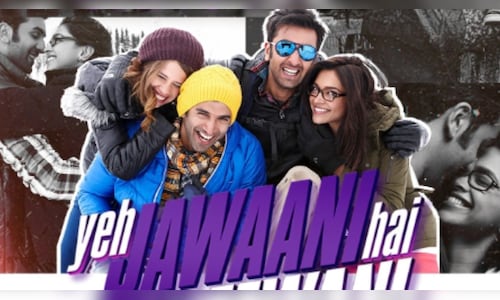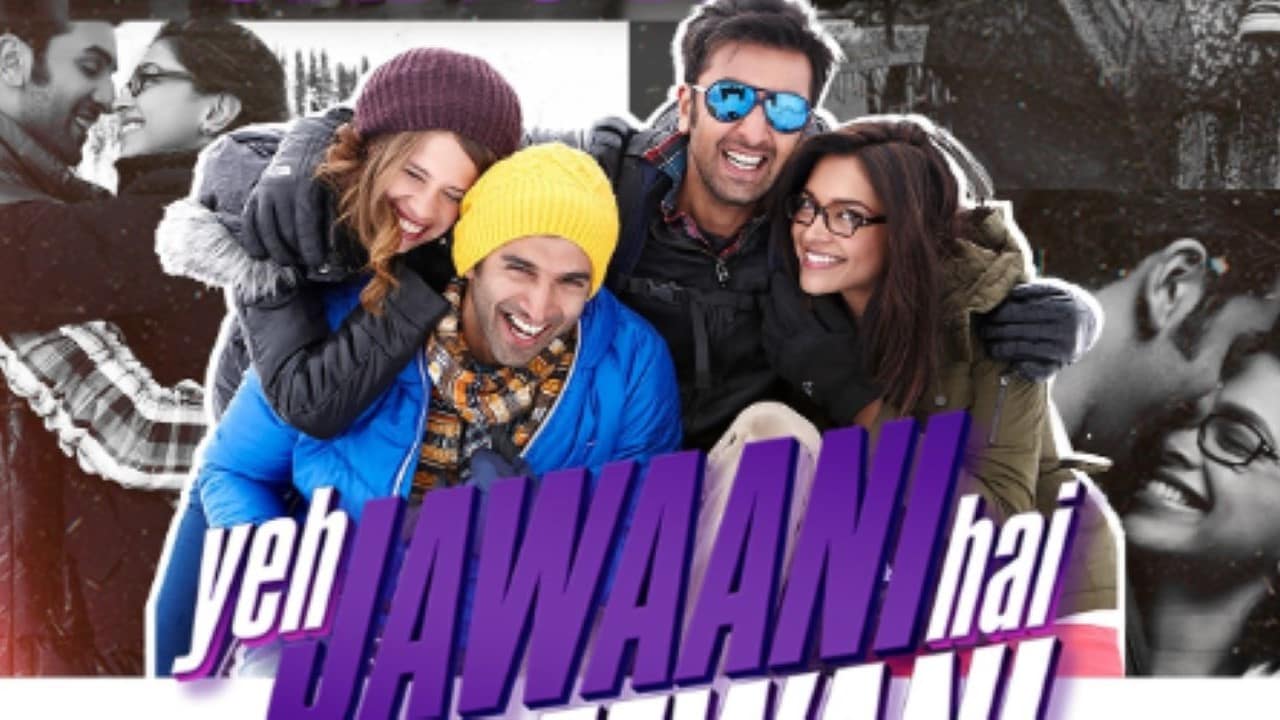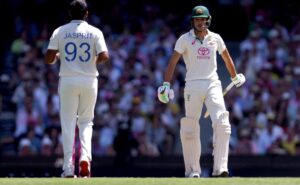

Even if you have streamed it countless times over the last decade and remember most of its dialogues word for word, the joy of dancing to Badtameez Dil, Balam Pichkari, Dilliwaali Girlfriend, or even Ghagra step for step in a dark theatre equipped with Dolby sound is unmatched.
With the phenomenon of re-releasing beloved films picking up like wildfire last year, it was only a matter of time that Yeh Jawaani Hai Deewani made it back to theatres. Such is its enduring popularity that the video invite that Kalki Koechlin shared on her Instagram asking everyone to attend the “reunion” of the OG millennial gang has got 22.2 million views, 1.7 million likes, and 29,400 comments within two days.
The Ranbir Kapoor-Deepika Padukone starrer continues to rule hearts even after over 11 years, so much so that the film sold more than 25,000 tickets in advance booking. It had a limited re-release with 750+ shows on January 3. But the demand was heartening that the number was more than doubled on the second day with 1,600 shows playing across the country on Saturday, according to film trade website Sacnilk.
Yeh Jawaani Hai Deewani was an undisputed winner when it first released in the summer of 2013, minting a whopping ₹319 crore (worldwide gross). It was the fourth-highest grossing film of that year after Dhoom 3, Chennai Express, and Krrish 3. The Dharma blockbuster continues to be a winner even today. As per Sacnilk, the romantic-dramedy earned an impressive ₹3.6 crore (net) in India in the first two days of its re-release. If it continues to ride high on the nostalgia wave, YJHD is likely to make north of ₹6 crore in its opening re-release weekend.
What is it about this film that speaks to countless millennials in the way only a few chosen films can? The beauty of Yeh Jawaani Hai Deewani is that for most people of my generation, it is that one film that made us feel seen, packing in the chaos, confusion, choices, and concerns that defined our 20s. It tapped into the core of every young urban Indian, giving us a coming-of-age story that dabbled with everything we cared for or were struggling with—friendship, travel, hustle, dreams, career, love, ambition, freedom, family, balance, identity—themes as old as time.
That aside, today, YJHD has gained greater significance because it returns to us the Ranbir Kapoor that we loved and have now lost, probably forever. It reminds us that he was Bunny before he became an Animal. It gives us another chance to witness his effervescent pairing with Deepika Padukone and the two of them creating magic on the big screen in the way only they can, the magic that we have been craving for since
Tamasha (2015) but have been, rather cruelly, kept deprived.
It also takes us back to the time when the Hindi film industry was yet to squander the true potential of explosive actors such as Kalki Koechlin and Aditya Roy Kapur. It was a simpler era when Ayan Mukerji was yet to get obsessed with his all-consuming Astraverse and was still making credible films with commendable music.
Moreover, 11+ years is too little time for a good film to feel dated. A lot has changed since we first met Bunny, Naina, Aditi, and Avi. We sure as hell have changed. But a lot has remained the same too, which works wonderfully in Yeh Jawaani Hai Deewani’s favor. It takes at least 20 years to truly gauge whether a film has stood the test of time.
Take, for instance, Rehnaa Hai Terre Dil Mein. Buoyed by the news of its re-release, I went to watch it at a PVR last September. But to my horror, I soon discovered I only remembered the memorable bits. Unable to skip the problematic or the boring, I realised I liked the film in parts and found the whole unwatchable. The 160 minutes felt like 500.
That’s mercifully not the case with YJHD. A little over a decade is just the right time to revisit a film. The distance is enough for you to want to look back at it with fondness but it hasn’t yet turned into a chasm that you can’t or don’t want to bridge. It’s the ideal mix of nostalgia and relatability.
However, for me, more than anything else, Yeh Jawaani Hai Deewani serves as a reminder that in spite of challenges galore, yin and yang can work, opposites can co-exist. Sure, the film’s end is simplistic and Bunny’s friends welcoming him into their lives after minor resistance feels anti-climactic, but YJHD gives hope that romantic partners need not necessarily be cut from the same cloth to create a lasting tapestry. That commonalities are a great starting point but it is what we do with the differences that truly defines any relationship. The coming together of a rooted doctor and an unmoored traveller is not wishful thinking or even a narrative quick-fix, it’s hope for what can be.
Also Read: Burj Khalifa turns 15: Iconic movies filmed at the world’s tallest skyscraper



